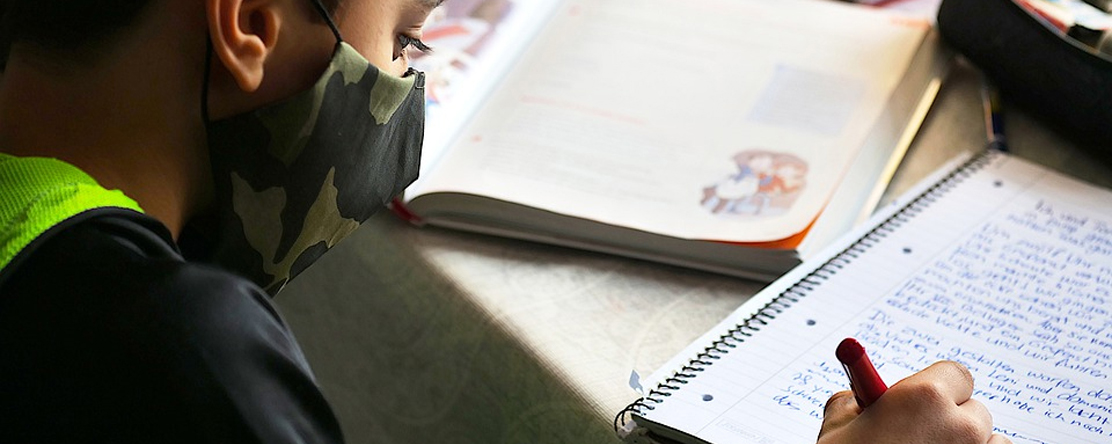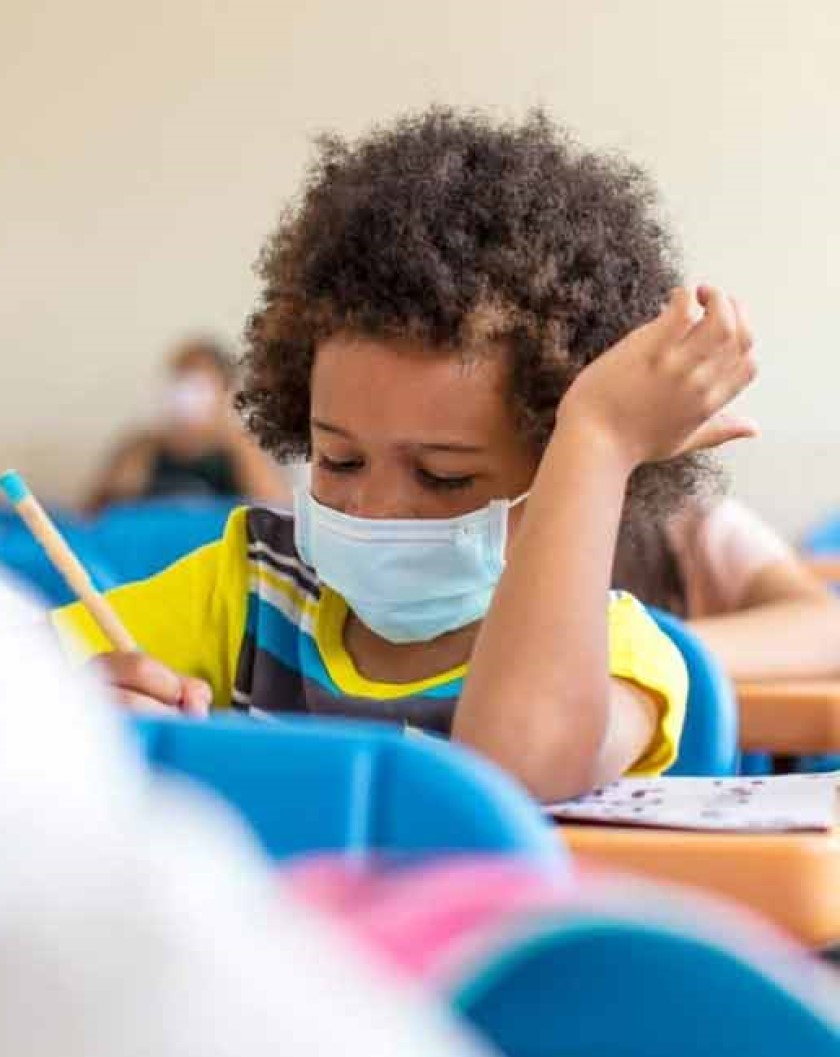
Press Release
Early Data from Public Health Institute’s “Safely Opening Schools” Pilot Indicate Utility of Rapid COVID-19 Testing as Schools Reopen
-
Focus Areas
Communicable Disease Prevention -
Issues
School-based Efforts -
Programs
Safely Opening Schools, Together Toward Health -
Strategic Initiatives
COVID-19

Oakland, CA–As more schools across California reopen for in-person classes, the Public Health Institute (PHI), with support from The California Endowment and the Ballmer Group, reports promising early data from Safely Opening Schools (SOS). SOS is an on-site, rapid COVID-19 screening pilot that began in January in 11 California school districts with more than 209 elementary schools and over 95,000 students. Data from the first eight districts where testing has started shows that out of the first 3256 tests conducted, there have been only 7 positive tests, a positive test rate of just 0.21 percent, or one in every 465 staff and students tested. These credit card sized tests can be administered by any trained member of the school staff and can provide results in just 15 minutes.
“Adding frequent rapid on-site COVID testing to other critical school safety measures gives parents and educators greater confidence that they can send their children to study safely or go to work at school,” said Lynn Silver, MD, MPH, director of the SOS pilot at the Public Health Institute. “Our early findings of just one in 465 people testing positive are reassuring, and also show that cases—even asymptomatic ones—can be caught early and contained quickly, before they spread.” The early data from the pilot supports the aim of President Biden’s initiative, announced last week, to provide $650 million for rapid antigen testing to help schools reopen across the country.
In addition to school districts and funders, partners in the program include the California Department of Public Health (CDPH), local health departments and Primary, a data platform. The SOS program is a learning collaborative that has developed clear and easy-to-follow methods and training for on-site rapid antigen COVID-19 screening, to help schools more quickly identify members of the school community who can transmit COVID, and take prompt action to protect students, staff and families from transmission. SOS aims to facilitate safer reopening, especially in predominately Latino and African American communities and school districts serving communities hardest hit by COVID-19.
School districts that asked to participate in the pilot include Ravenswood, Redwood City and La Honda-Pescadero in San Mateo County; Planada, Weaver and McSwain in Merced County; Compton, Pomona and Rosemead in Los Angeles County; Fresno Unified in Fresno County and Oakland Unified in Alameda County. The McSwain schools were the pioneering district and have completed two months of the program, and seven other districts have completed between 1-3 weeks of testing.
In a California Department of Education (CDE) web forum last week highlighting the SOS school testing pilot, Tony Thurmond, California State Superintendent of Public Instruction, spoke with Roy Mendiola, Superintendent of the McSwain Union Elementary school district and Dr. Anthony Iton, senior vice president, programs and partnerships at The California Endowment. “Our goal is simple: to do whatever we can to help California schools reopen safely,” said Dr. Iton, “We’re very concerned about Black, brown, indigenous and other communities who are really struggling as the achievement gap widens during the pandemic.” Hundreds of schools expressed interest in rapid testing after the webinar and PHI will be collaborating with CDE to quickly support a group of highest need districts.
The SOS program is part of PHI’s Together Toward Health initiative which manages a nearly $30 million pooled fund from philanthropic organizations in support of community based efforts for Californians most impacted by COVID-19. Primary.Health is the pioneering software solution used by SOS to record, process and report testing results and administer the data.
“Our equity-based approach to school testing is a critical tool to help urban and rural, large and small school districts to safely reopen,” said Andrew Kobylinski, CEO and co-founder of Primary.Health. “It is inspiring to see community organizations come together and take action to support the safe return of California students and teachers to school.”
PHI plans to continue partnering with CDE, CDPH and school districts to offer resources, trainings and an online training platform to assist more schools across the state in implementing rapid antigen testing as they bring students, staff and teachers back to campus.
See the Safely Opening Schools website to learn more.
About the Public Health Institute
The Public Health Institute, an independent nonprofit organization, is dedicated to promoting health, well-being and quality of life for people throughout California, across the nation and around the world.
Learn more about Safely Opening Schools
Work With Us
You change the world. We do the rest. Explore fiscal sponsorship at PHI.
Support Us
Together, we can accelerate our response to public health’s most critical issues.
Find Employment
Begin your career at the Public Health Institute.


